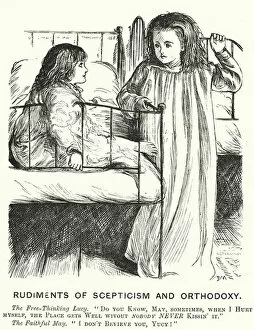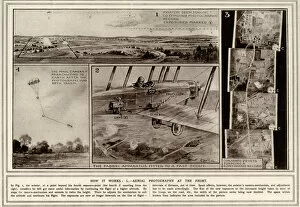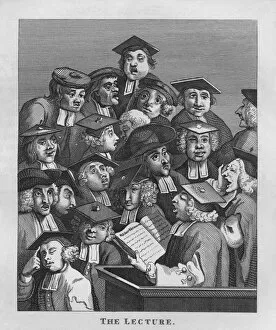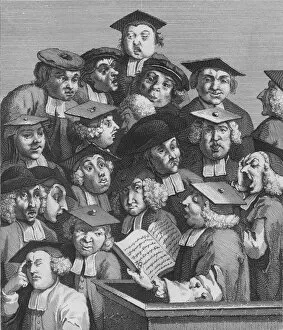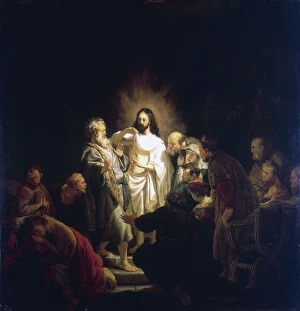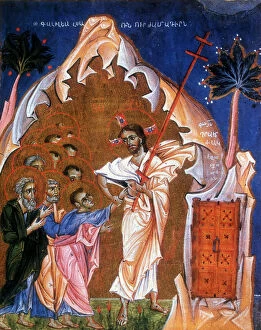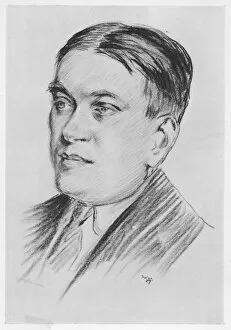Scepticism Collection
"Scepticism: A Journey through Doubt and Inquiry" In the realm of philosophy, David Hume stands as a prominent figure
All Professionally Made to Order for Quick Shipping
"Scepticism: A Journey through Doubt and Inquiry" In the realm of philosophy, David Hume stands as a prominent figure, challenging conventional beliefs with his sceptical inquiries. Like a caricature that exaggerates features to provoke thought, Hume's ideas pushed boundaries and questioned established truths. Stepping into the political arena, John Bull and Lloyd George engaged in a heated debate over the 1909 Budget. This Punch cartoon captures their scepticism towards each other's arguments, highlighting the importance of critical thinking in shaping policies. Another Punch cartoon challenges Charles Darwin's theory with logical refutation. Through this engraving, we witness how even scientific theories are subjected to scrutiny and doubt - an essential aspect of intellectual growth. The rudiments and orthodoxy are explored in yet another captivating Punch cartoon. It reminds us that questioning prevailing norms is crucial for progress while acknowledging the need for balance between skepticism and acceptance. Shifting our focus from philosophical debates to historical events, aerial photography during World War One introduced a new perspective on warfare. These images instilled doubt among military strategists about traditional tactics, leading to innovative approaches on the battlefield. Hume himself remains an enigmatic figure whose portrait from 1830 reflects his contemplative nature. The unknown artist captured his essence as a thinker who challenged existing knowledge fearlessly. Two depictions titled "The Lecture" take us back in time - one from 1808 by Thomas Cook and another from 1736 by an unknown creator. Both capture moments where individuals question what they hear or learn; reminding us that curiosity drives human progress. Artistic renditions like Rembrandt Harmensz van Rijn's "Doubting Thomas" (1634) or T oros Roslin's version (c1268) remind us of ancient tales where doubt played its part in seeking truth beyond blind faith. Even humor can serve as a tool for scepticism.




